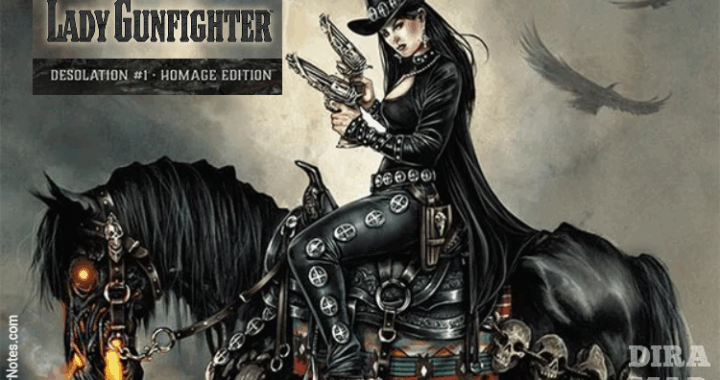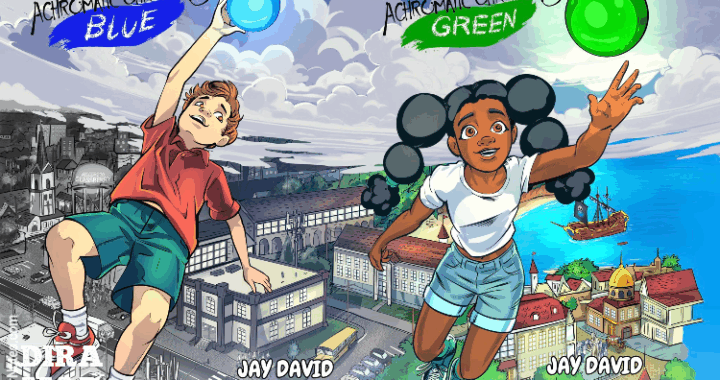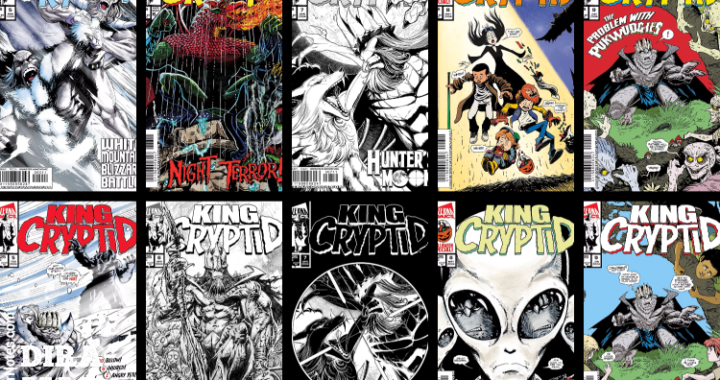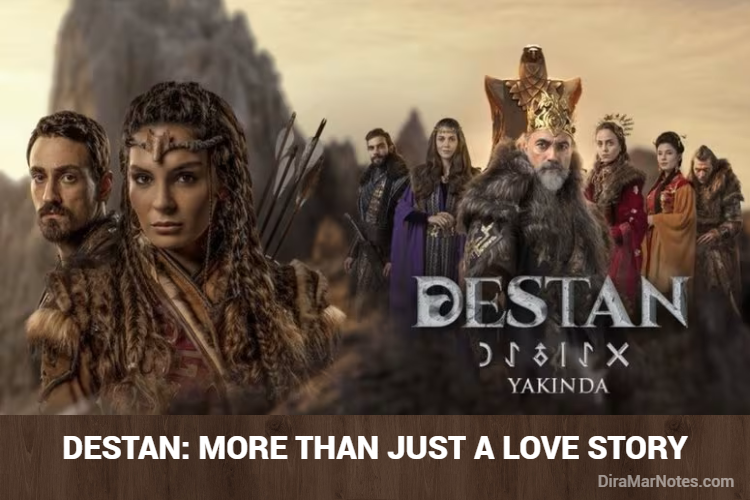
DESTAN: MORE THAN JUST A LOVE STORY
Destan is more than just a love story, it is a saga of resilience, cultural heritage, and the unyielding human spirit.
Destan is a Turkish historical action drama that aired on ATV from November 2021 to September 2022. Produced by Mehmet Bozdağ, the series stars Ebru Şahin as Akkiz, Edip Tepeli as Batuga, and Selim Bayraktar as Alpagu Khan.
Destan is a captivating Turkish historical drama series that delves into the epic love story between Akkiz, a legendary warrior from the mountains, and Batuga, the noble yet physically challenged prince of the powerful Gök Khanate.
Set in the 8th century against the backdrop of the harsh steppes of Central Asia, the series portrays the struggles and triumphs of two individuals who were orphaned by the same ruler, Gök Khan Korkut Khan. The steppes refer to the large open landscapes of Central Asia, where nomadic Turkic tribes lived during the 8th century. These lands played a crucial role in their culture, as they were home to warriors, traders, and herders who thrived in the challenging environment.
THE SERIES
The series consists of 28 episodes of approximately 2 hours each. Each episode of Destan presents a new challenge for Akkiz and Batuga, taking viewers deeper into their personal growth and the broader political disruption of the era.
From overcoming betrayals and ambushes to navigating arranged marriages and battles, the series is rich in dramatic tension and emotional depth. The battles are bloody but there are no sexual scenes. Compared to everything that is out here I would say the series is suitable for 12+.
The series is available for streaming with English subtitles on Apple TV and you can also find it on YouTube with subtitles in French, Japanese, Russian, Spanish, Urdu, and with English auto-translation.
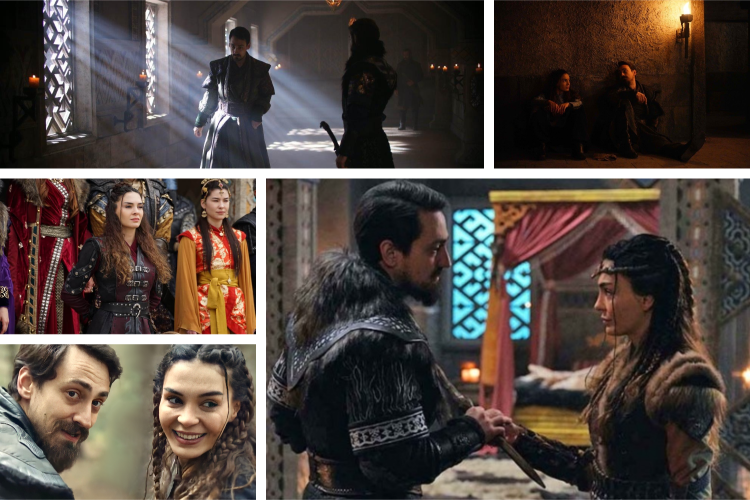
THE STORY
The story revolves around Akkiz, a fierce and independent warrior who has endured hardship since childhood. Orphaned at a young age, she learned to survive through sheer determination and relentless hard work. Akkiz belongs to a proud but impoverished mountain tribe and has had to navigate the treacherous landscape of Central Asia while fending for herself.
On the other hand, Batuga, the only son of the powerful Khan, faces his own challenges. Despite his royal lineage, he struggles with a physical disability that prevents him from meeting his father’s expectations of becoming a great warrior. Batuga’s condition makes him an outcast in his own realm, but his intelligence and kindness set him apart.
Fate brings Akkiz and Batuga together, and their friendship gradually blossoms into a deep love. However, their journey is filled with trials, as they must deal with political intrigue, social prejudices, and the ever-present threat of war. As they fight for their love, they also fight for their people, navigating a world of rivalries and shifting alliances.
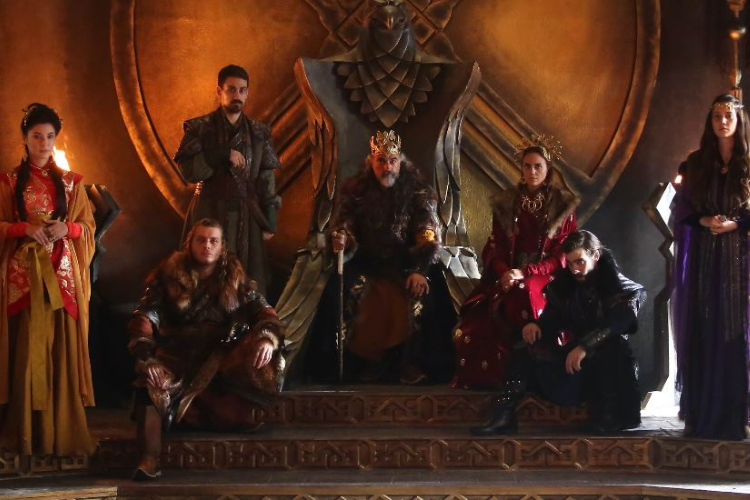
KEY THEMES
The series highlights the struggle of individuals against fate and tradition, showing how Akkiz and Batuga fight to shape their own destinies. Beyond the romance, Destan explores several profound themes, including:
Resilience and Empowerment
Akkiz’s journey is a testament to perseverance and the strength of the human spirit. It showcases how one can rise above adversity through courage and determination.
Political Intrigue and Power Struggles
The series dives into the complexities of ruling a kingdom. Various factions vie for control and influence, making every decision a matter of life and death.
The sense of patriotism
The political disruption and constant threats from rival factions and foreign invaders are not just background elements but crucial motivators that propel Akkiz and Batuga to unite in their struggle. Their love story is intertwined with a shared sense of duty to their homeland, reinforcing the idea that personal desires must often be set aside for the greater good of their people. Their fight against invasion is not just about preserving their kingdom’s borders but also about safeguarding their cultural identity and way of life.
Cultural Heritage
Destan beautifully depicts the traditions, customs, and way of life of Turkic tribes during a transformative period in history. It may not be accurate like most historical shows, but it gives me an idea of how it could have been. The attention to detail in the customs and the sets is something you don’t see often.
Social Prejudices
Batuga’s struggle with his disability highlights the challenges faced by individuals who do not fit societal expectations and how they can still contribute meaningfully to their communities. The series also highlights the struggles of high-status women who are unable to have children and the fear they face of being abandoned by their husbands because of it. It makes me sad to see how modern Western women have taken it for granted to the point where the celebration of abortion has become a thing and the celebration of life is viewed as religious and weird.
FIRST IMPRESSIONS
The show has an engaging story, stunning visuals, strong performances, especially by Ebru Şahin and Edip Tepeli, and a powerful depiction of Turkish culture and history.
The show got me hooked from the very first episode with its engaging and well-crafted storyline that seamlessly blends romance, action, and political intrigue. The breathtaking cinematography brings the rugged landscapes of Central Asia to life, immersing audiences in the historical setting with vivid detail.
CHARACTER BUILDING OF THE LEADS
The series shows exceptional performances, with Ebru Şahin delivering a powerful portrayal of Akkiz as a fierce yet emotionally complex warrior, and Edip Tepeli embodying the quiet strength and resilience of Batuga.
Their on-screen chemistry adds emotional depth to the narrative, making their love story both compelling and believable. The series also succeeds in portraying themes of empowerment and perseverance through the leads’ stories, making it more than just an epic romance.
THE FEMALE LEAD
Akkiz’s journey is extremely difficult due to the harsh realities imposed by her social class. Unlike men, who could often escape dire situations through combat or alliances, women were bound by societal constraints that left them vulnerable to exploitation and oppression. Being born into poverty was often seen as a direct path to suffering but at the same time, it was a source of strength. Men and women must learn to fight. The men protect their tribe, and when they are away, the women with effort do their utmost to protect themselves, their children, and the most vulnerable against threats.
In a world where weak men, women, and children were commonly taken as slaves, survival for Akkiz was not just about learning to gain physical strength but also about intelligence, adaptability, and an unwavering will to break free from the cycle of oppression.
In the unforgiving social hierarchy of the time, those who could fight and prove their worth found opportunities to climb the ranks and seize power. However, power itself came with limitations, one could not fully escape the rigid societal expectations and responsibilities that came with leadership.
Even warriors and rulers were bound by traditions, cultural norms, and the ever-present threat of betrayal. Therefore, Akkiz’s path to empowerment is not just a battle against external foes but also a struggle to navigate and challenge the deeply ingrained customs of her people.
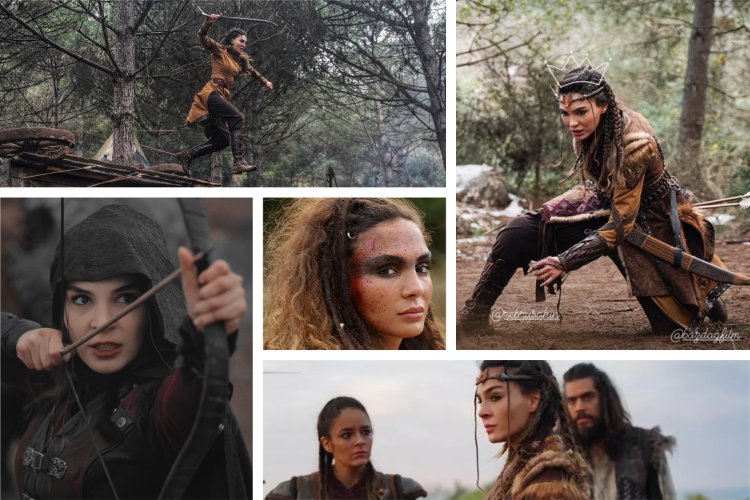
Unlike the modern Western portrayal of strong female characters as perfectly skilled and less feminine, Akkiz’s journey provides a refreshing and authentic perspective, deeply rooted in the historical context of her era. She does not reject tradition outright but rather finds ways to challenge and redefine it from within. Akkiz remains determined and hardworking, developing her skills and instincts to survive in a hostile world. She learns to wield both weapons and wisdom, mastering the art of survival and leadership.
Over time, her experiences shape her into a formidable warrior and strategic thinker, capable of outsmarting even the most powerful adversaries. What sets Akkiz apart is not just her strength but her resilience, her ability to rise after every fall and push forward despite the odds stacked against her. As a woman she gets emotional when she sees abuse and at times storms into battle but over time she learns that planning makes a difference.
Her growth feels organic and relatable to me. Her struggle is both timeless and inspiring. Through Akkiz, Destan offers a powerful narrative of perseverance and self-discovery, demonstrating that true strength lies in the ability to adapt, learn, and lead, even in the face of overwhelming adversity.
THE MALE LEAD
Meanwhile, Batuga’s struggle with his physical limitations and his quest for self-worth add layers of emotional complexity to the storyline. As the son of a powerful khan, Batuga is born into privilege and status, yet his disability makes him an outcast in his own world.
In a society where strength and combat prowess define a man’s worth, Batuga is constantly judged and underestimated. People think he is stupid but he is not. He acts like he is to gain information. The expectations placed upon him are high, men of his stature are required to become exceptional warriors from a young age, destined to lead their people into battle and uphold their family’s legacy. However, Batuga’s physical impairment prevents him from meeting these expectations, leading to feelings of inadequacy and self-doubt.
Despite his challenges, Batuga possesses a sharp intellect and a keen strategic mind, which he gradually learns to embrace as his true strength. Through his encounters with Akkiz, he finds both a source of inspiration and a partner who sees beyond his physical limitations.
Unlike the typical modern Western portrayal of male characters as dumb and less masculine, Batuga embarks on a transformative journey, learning to overcome obstacles, finding inner strength, and discovering new ways to fight with honor, and protect not only himself but also Akkiz and their people.
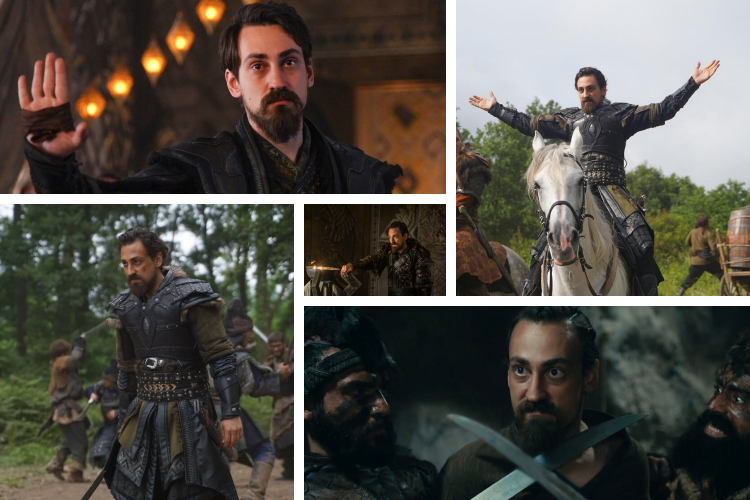
THE RELATIONSHIP BETWEEN THE LEADS
The relationship between Batuga and Akkiz is built on mutual respect and understanding. We learn that their paths have crossed in the past. Together, they defy societal norms, proving that strength comes in many forms, not just physical and spiritual, but also in intelligence, loyalty, and perseverance.
As they navigate the trials and tribulations of their world, Batuga and Akkiz learn to trust each other implicitly, forging an unbreakable bond that transcends their individual struggles. Ultimately, their love story is one of equality, partnership, and shared destiny, where they stand side by side, facing their enemies and shaping their future together.
CULTURE AND TRADITIONS
In addition to the strong character portrayals, Destan stands out for its attention to historical and cultural representation, immersing viewers in the vibrant world of 8th-century Central Asia. Like any historical project, It may have inaccuracies but as a viewer, I appreciate the effort.
The series reconstructs the era through intricate details that reflect the customs, values, and way of life of the Turkic tribes. From the breathtaking landscapes that showcase the vast steppes and rugged mountains to the elaborate yurts and bustling marketplaces, every visual element is crafted to transport audiences to a bygone era.
One of the most striking aspects of Destan is its costumes, which play a crucial role in storytelling and cultural immersion. The traditional garments worn by Akkiz, Batuga, and the other characters are not just visually stunning but are also designed with historical precision, reflecting the social status, regional influences, and practical needs of the time.
The use of intricate embroidery, natural fabrics, and symbolic accessories, such as fur-lined cloaks for protection against harsh winters and ornate jewelry signifying rank and heritage, demonstrates a deep commitment to authenticity.
Each costume is carefully designed to reflect the personality and status of the character, with Akkiz’s practical warrior attire contrasting with the elaborate royal garments worn by Batuga and the members of the Gök Khanate court.
Beyond the visual aspects, Destan offers a depiction of Turkic traditions, customs, and social structures. The series delves into the nomadic lifestyle, showcasing key aspects such as the significance of family honor, the role of elders in decision-making, and the complex rituals associated with marriage, warfare, and leadership transitions. Scenes featuring traditional ceremonies such as elaborate feasts, battle preparations, and religious practices, add depth to the narrative while showing the rich cultural heritage of the Turkic people.
Moreover, the series illuminates the spiritual and philosophical beliefs that shaped the era’s worldview. From shamanic rituals and nature worship to the influence of emerging religions such as Islam, Destan explores the spiritual dimensions that influence daily life and governance. The portrayal of the Tengri belief system, which is centered on harmony with nature and the guidance of ancestral spirits, adds a layer of authenticity and cultural depth.
By incorporating these cultural elements into the storyline, Destan provides a captivating educational experience for audiences who are eager to learn about history and heritage. The commitment to cultural representation not only enhances the visual and narrative appeal of the series but also fosters a deeper appreciation for the resilience and legacy of the Turkic people.
Whether it’s the strategic battle tactics, the complexities of political alliances, or the deep portrayal of familial bonds, Destan provides a richly layered depiction of a captivating historical era. The story kept me emotionally invested in the characters, making me care deeply about their fates. The uncertainty of who will survive or die adds to the suspense and emotional weight of the series. The ending delivers a blend of sorrow and joy. One of the most unforgettable moments is when Akkiz’s heart-wrenching scream on the battlefield echoes the pain she is feeling, making it a truly emotional and memorable scene.
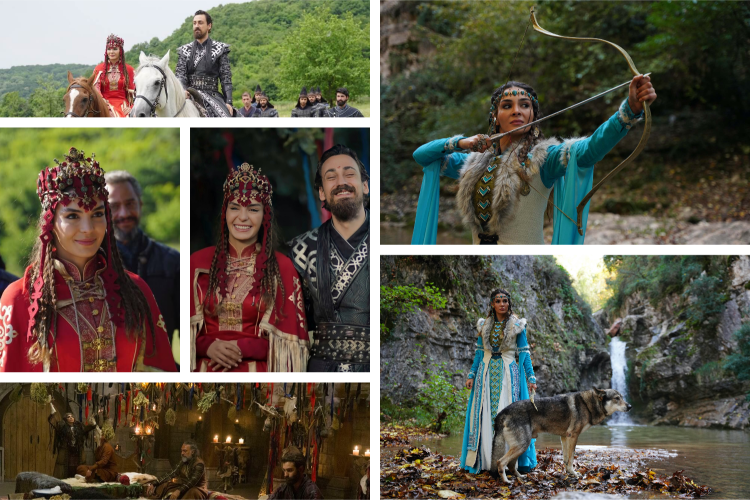
“We either live together, or we die together”
On the downside, following the time jumps as the series progressed was difficult. In the beginning, I was able to follow the scenes that went back 15 years into the past when Batuga was a child. As the series continues, many time jumps to the past that are closer to the present, sometimes with only a few weeks or months in between. Other times, there are time jumps into the future.
In the series, the characters often imagine things happening, and as a viewer, you don’t immediately realize that they are imagining it. This technique works very well at times, delivering heart-stopping moments and keeping the viewer engaged. Other times, it makes it more challenging to follow the story.
Even though they did their best to work on the visuals through practical effects, at times you can spot that they had a limited budget to work with like with the quantity of soldiers. At the same time, knowing how the West overuses CGI, I’m not sure if adding more soldiers digitally would have been a better choice.
FINAL THOUGHTS
Destan is more than a tale of love; it blends romance, adventure, and historical drama. It powerfully reminds us of the enduring human desire for justice, belonging, and self-determination.
Destan effectively highlights the importance of loyalty, sacrifice, and unity, showing how people can overcome their personal struggles to work toward a common goal. The series demonstrates how external threats push individuals to form alliances, build stronger relationships, and uncover strengths they didn’t realize they had.
Through its beautifully crafted storyline, dynamic characters, and rich historical backdrop, Destan offers audiences an immersive experience that transcends time and culture. The series captures the essence of resilience and the pursuit of one’s destiny against all odds, making it a must-watch for fans of epic dramas. It is both entertaining and thought-provoking.
Whether it’s the breathtaking landscapes, intricate costumes, or intense battle sequences, Destan leaves an indelible mark as a story of courage, love, and legacy. People complain a lot about bad entertainment, but they are often not open to trying something different and new because it’s unfamiliar. If it’s not obvious by now, I liked this series a lot, and I hope I sparked your interest in checking it out.
My Rating: 7/10
All images in this publication belong to the original creators and are used as references under fair use.
My notes are all set. Let me know what you think.
See you on the next page!

